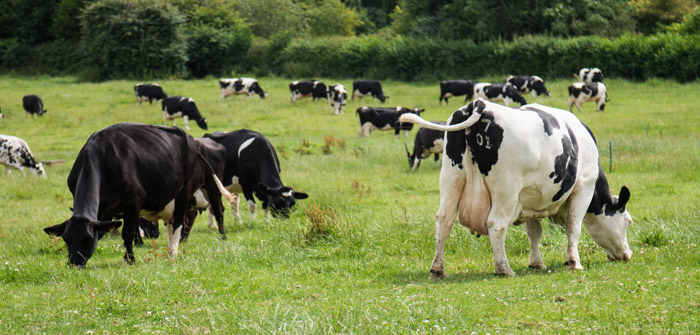Zoetis has warned that dairy farmers should not be fooled into thinking the risk of pneumonia in calves disappears as temperatures rise this spring.
Although the overall incidence of pneumonia decreases in spring and summer as the weather warms up, calves that are housed are still at risk, and therefore should be protected.
According to the Animal and Plant Health Agency’s (APHA) GB Cattle Disease Surveillance Dashboard, during the winter months from October 2017 to March 2018 there were 522 pneumonia diagnoses, compared to 282 diagnoses during the spring and summer months from April to September 2018.
Carolyn Hogan, national veterinary manager at Zoetis, said: “For most pneumonia cases, samples are not submitted for diagnostics, and therefore these figures don’t tell us the total incidence of pneumonia in the UK, but they do tell us when calves are getting pneumonia.
“A significant proportion (35%) of the pneumonia diagnoses were made between April and September 2018, showing that pneumonia problems continue during the spring and summer months, and that this isn’t just a winter problem.”
A calf’s susceptibility to pneumonia is influenced by the strength of its immune system. Key factors which influence immunity include:
- Adequate colostrum intake given as quickly as possible after birth;
- Nutrition, and management of dietary changes;
- Management practices;
- Stress – transportation, sudden feed changes, overcrowding;
- Environment – poor ventilation, high humidity, damp bedding, temperature fluctuations, draughts; and
- Mixing animals of different ages groups within the same airspace.
Ms Hogan added: “Even though the weather is warmer, less damp and less humid, animals that are housed are still at risk from housing factors such as poor ventilation, draughts, and increased pathogen challenge due to close contact with other calves. Also, in spring there can be significant temperature differentials between day and night, which increases stress in calves and their susceptibility to pneumonia.”
Bovine Respiratory Disease (BRD) is estimated to cost the UK cattle industry about £80 million per annum or £43 per reared calf.
Ms Hogan added: “Many farmers may only associate the cost of BRD as being the medicine costs and initial knock to growth rates, but in truth, the costs are far more long-term. Pneumonia can cause delayed age at first calving due to the impact on growth ratesreduction in long-term milk yieldand reduced lifespan.”


